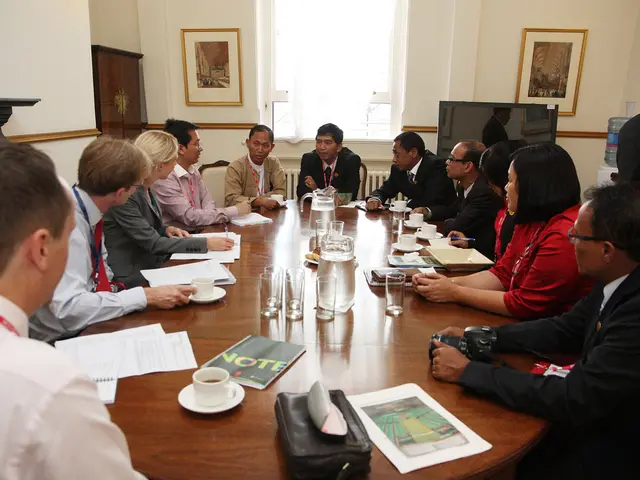Kazakhstan's Mission to Foster Eco-consciousness Through the "Taza Kazakhstan" Initiative
Approximately 2 million Kazakhstan residents engaged in the presidential program "New Kazakhstan"
The large-scale environmental project, "Taza Kazakhstan," has been making waves in Kazakhstan. During this ecological action, a whopping 189,000 tons of waste have been collected, as reported by Vechernyaya Astana, citing the press service of the Government of the Republic of Kazakhstan.
This project became a platform for approximately 2 million people to participate, with an impressive 156,000 volunteers partaking in the presidential initiative. According to Yerlan Nysanbaev, the Minister of Ecology and Natural Resources, this action embodies the significant contribution the population has made towards improving the country's ecological situation.
The primary objective of "Taza Kazakhstan" is to cultivate a deep appreciation for nature among citizens and encourage active participation in resolving environmental issues. 573 events were organized as part of the initiative, leading to the collection of roughly 189,000 tons of waste, the cleaning of over 735,000 hectares of land, and the planting of more than 2 million trees.
Nysanbaev highlighted that the "Taza Kazakhstan" concept's purpose is to promote a culture that respects nature, values the importance of the environment, and embraces active involvement in environmental problem-solving. He emphasized that this initiative has united the population and strengthened the national spirit, making the initiative a significant nationwide movement.
At a government meeting, Minister of Science and Higher Education, Sayasat Nurbek, discussed the implementation of the "Taza Kazakhstan" concept in the higher education system. He announced that since the initiation of the state's "Taza Kazakhstan" action, around 1,500 various events have been held, and over 240,000 people from higher educational institutions took part in these events.
Looking ahead, "Taza Kazakhstan" has several key plans for implementation within the next five years:
- A Day for Cycling: Promote eco-friendly transportation by dedicating a day to cycling.
- Green Energy System: Foster the development and adoption of renewable energy sources, such as solar and wind power.
- Waste-free Campus: Develop initiatives that aim to minimize waste generation on campus.
- Green Spaces: Create parks, gardens, and green areas on university campuses.
The establishment of a greener campus culture and fostering environmental consciousness among students and educators are fundamental aspects of the "Taza Kazakhstan" initiative within the higher education system. By focusing on interdisciplinary learning, research, innovation, and practical implementation of green practices, the future of Kazakhstan's environmental education appears bright and promising.
- To complement the "Taza Kazakhstan" initiative, a focus on environmental science and sustainable living is vital in educational institutions, such as environmental-science courses and workshops on sustainable-living to enlighten the future generation.
- The "Taza Kazakhstan" project's emphasis on nurturing an eco-friendly lifestyle can also extend to home and garden sectors, offering information and resources on reducing waste, recycling, and employing eco-friendly practices in daily life.
- As leaders in their respective fields, educators can use platforms like online learning and education-and-self-development websites to share knowledge about climate change and the importance of preserving the environment, helping to further spread eco-consciousness on a global scale.
- Fostering a green attitude doesn't stop at an educational environment; embracing sustainability can also be incorporated into lifestyle choices, such as pursuing environmentally-friendly businesses, industries, and employment opportunities, fostering a widespread commitment to protecting the environment.







